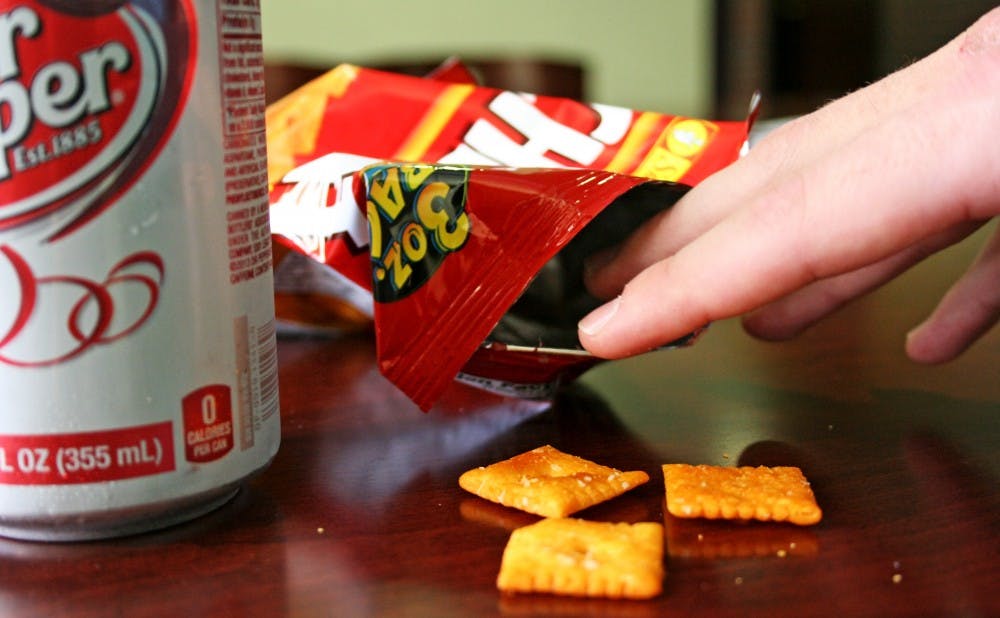Malnutrition is not the only food-related issue in developing countries such as Honduras, Duke researchers have found.
A study published in “Appetite” journal this month found that 92 percent of television advertisements promoting unhealthy food in Honduras target children. University of Utah medical student Matthew Gunderson led the research last year as part of his thesis project for the Duke Global Health Institute. He found that a lack of government intervention and the prominence of the advertising on cable television are some of the main perpetrators of the issue.
“When we think of public health concerns among children in developing countries, we usually think of undernutrition,” Gunderson said. “Certainly, that is still a major concern in many developing countries, but rates of childhood overweight and obesity are also increasing, which produces an enormous public health problem known as the ‘double burden’ of malnutrition.”
The researchers analyzed 80 hours of after-school programming over the course of one week in La Ceiba, Honduras. They examined advertisements on four television stations—three cable and one broadcast—and found that all of the advertisements for unhealthy food were aired on the cable stations.
“We were surprised to see that there was very little food advertising on broadcast television in Honduras and no advertising at all for unhealthy foods,” Gunderson said. “In a way, it does make sense, because junk food, like cable television, is still a luxury in Honduras.”
According to the study, there are only 96 television sets per 1,000 people in Honduras, in stark contrast to the U.S., where there are 803 sets per 1,000 people. Companies have found other means to promote themselves in Honduras, including billboards and public buses.
“Advertising is moving beyond television and reaches kids through a number of other channels,” said Sara Benjamin Neelon, associate professor of community and family medicine at DGHI and co-author of the study. “We need to consider limiting food marketing to children from all potential avenues.”
There is little to no regulation on food advertising in Honduras and across Latin America, apart from Mexico, where the government—which is faced with obesity rates rivaling those of the United States—announced a plan earlier this month to ban junk food advertisements during children’s programs. The researchers proposed in the study that Honduras, like Mexico, should institute national legislation limiting advertising of foods with low nutritional value.
“Industry self-regulation isn’t working,” Benjamin Neelon said. “Most food companies that advertise to children are profit-driven—we can’t expect these companies to be altruistic or police themselves.”
Networks including Disney Channel market foods like sweetened cereals, fast food, candy, chips and sweetened beverages regularly during after-school hours.
“Advertising for junk food was definitely apparent,” said freshman Izzy Jensen, who traveled in Honduras this past summer. “You notice it on TV, but also throughout more public places.”
Benjamin Neelon noted that the marketing’s success might be rooted in many young children’s inability to differentiate between the television programs and advertisements.
“Advertising of unhealthy foods to children isn’t causing childhood obesity, but it’s contributing. It’s a piece of the puzzle,” Benjamin Neelon said.
Honduras provided a unique opportunity for the researchers as a place that is studied relatively rarely.
“Nobody has done any research of this kind in the country before,” Gunderson said. “The opportunity to establish baseline data was very exciting.”
Get The Chronicle straight to your inbox
Signup for our weekly newsletter. Cancel at any time.

